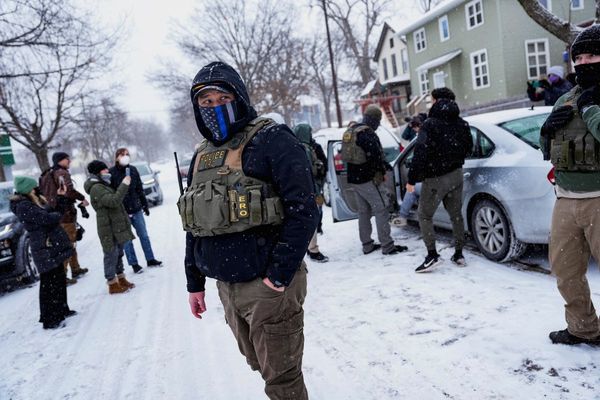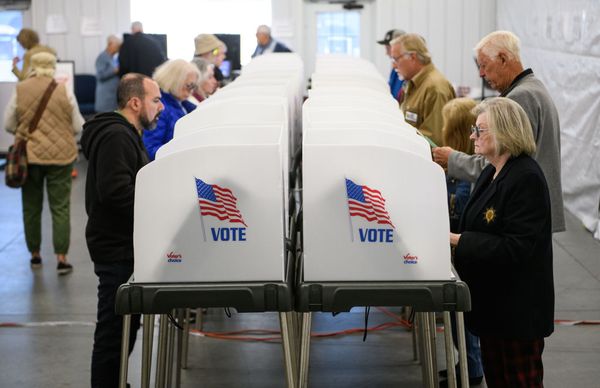Most private schools that took JobKeeper increased their income during the first year of the pandemic, including some of Australia's most exclusive schools.
For the first time, the ABC can reveal all 395 non-government schools that reported claiming JobKeeper in 2020 and the amounts they received.
The ABC has also analysed the incomes and surpluses of these schools, which reported accessing $769 million in wage support.
With taxpayers subsidising pay packets, together these schools more than doubled their surplus in 2020 to almost $1 billion.
"The taxpayer does not need to be subsidising schools that have more money than they know what to do with," said investment analyst Dean Paatsch, who has been monitoring the subsidy program.
"JobKeeper topped up their [surpluses] and increased their cash," he said.
"They could renovate their boat shed, finish their indoor pools … upgrade their gymnasium and wellness centre — all of those things occurred."
The $89 billion JobKeeper program is estimated to have saved more than 700,000 jobs but has been dogged by questions about the efficiency of that huge spend.
Most employers, including private schools, qualified for the subsidy based on a real or projected downturn of 30 per cent in the early months of 2020.
The 395 non-government schools that claimed JobKeeper represent a little over 10 per cent of the sector.
But 235 of these schools later told the Federal Education Department their incomes had actually increased in 2020 — even without JobKeeper.
For schools where incomes were up, they reported receiving at least $315 million in JobKeeper.
One hundred and fifty-six schools reported a downturn in recurrent income for 2020, including six that fell by more than 30 per cent, according to the Parliamentary Budget Office.
Organisations that qualified during the initial phase of JobKeeper collected $1,500 a fortnight per eligible employee for up to six months — regardless of their later turnover.
"JobKeeper's fatal flaw was that you qualified in an instant, based on a downturn that could have been simply a forecast or temporary," Mr Paatsch said.
"[And] it never included a clawback mechanism.
"They could easily have afforded to return it."
Federal Treasurer Josh Frydenberg previously defended allowing employers to qualify based on projections, and not forcing companies to repay JobKeeper they did not need.
"If we didn't do that … we wouldn't have got the money out the door," he told 7.30 last September.
"If they were going to have to pay back that money, then they would haven't necessarily taken it in the first place, and you would have seen jobs being lost."
Mr Frydenberg was unavailable for an interview for this story, but in a statement defended his scheme as "one of the most successful economic support programs in Australia's history".
Some high-profile institutions that claimed JobKeeper include:
- The King's School in Sydney claimed more than $8 million.
- Melbourne's Wesley College — which recently renovated its rowing facilities on the Yarra River -—received more than $17 million.
- Queensland's The Southport School pocketed almost $5 million in the same year it tripled its surplus.
- Canberra Grammar, which doubled its surplus in 2020, took $7 million.
- Hobart's The Hutchins School reported almost $4 million in wage subsidies.
- South Australia's Sacred Heart College increased its surplus by almost the same amount it received in JobKeeper.
- Perth's Hale School tripled its surplus in 2020 after receiving $7 million.
The ABC has also analysed the schools' financial filings with the charities regulator, which show JobKeeper schools increasing their surpluses from around $350 million in 2019 to at least $884 million.
There is no suggestion that any schools that claimed JobKeeper did anything wrong.
Independent Schools Australia, which represents more than 1,000 schools, said its members "rely heavily on fees paid by parents — many of whom lost jobs or income due to the impacts of COVID-19”.
"JobKeeper has helped save the jobs of teachers and other staff at many independent schools across Australia," a spokeswoman said.
Revenue among schools that collected JobKeeper in 2020 fell overall by around 1 per cent across the year.
"Teachers weren't stood down [and] school fees continued to be paid by parents," Mr Paatsch said.
"JobKeeper in those circumstances makes their labour cheaper, and their [surpluses] increase, and this is what we saw," he said.
Independent Schools Australia said most boarding schools that qualified for JobKeeper did lose revenue "when international, regional and interstate students were forced to stay home due to border and health restrictions".
"Boarding schools do not receive recurrent funding from government to cover the costs of boarding houses," a spokeswoman said.
Headmaster of The King’s School, Tony George, said support was required at the time, particularly for schools, like his, with boarding students.
"The pandemic presented profound challenges for all schools as they worked to meet the government requirement to remain open, educate Australian children and keep teachers employed," he said.
"While government schools continued to be funded directly, the only support available to non-government schools that experienced a loss of income was through the Federal Government’s JobKeeper program.
"Unfortunately, most non-government schools were unable to satisfy the strict eligibility requirements."
Schools provided the income and JobKeeper data to the Education Department, which later provided it to the independent Parliamentary Budget Office, which collated it on behalf of Federal Labor MP Andrew Leigh.
Watch this story on 7.30 on ABC iview.







